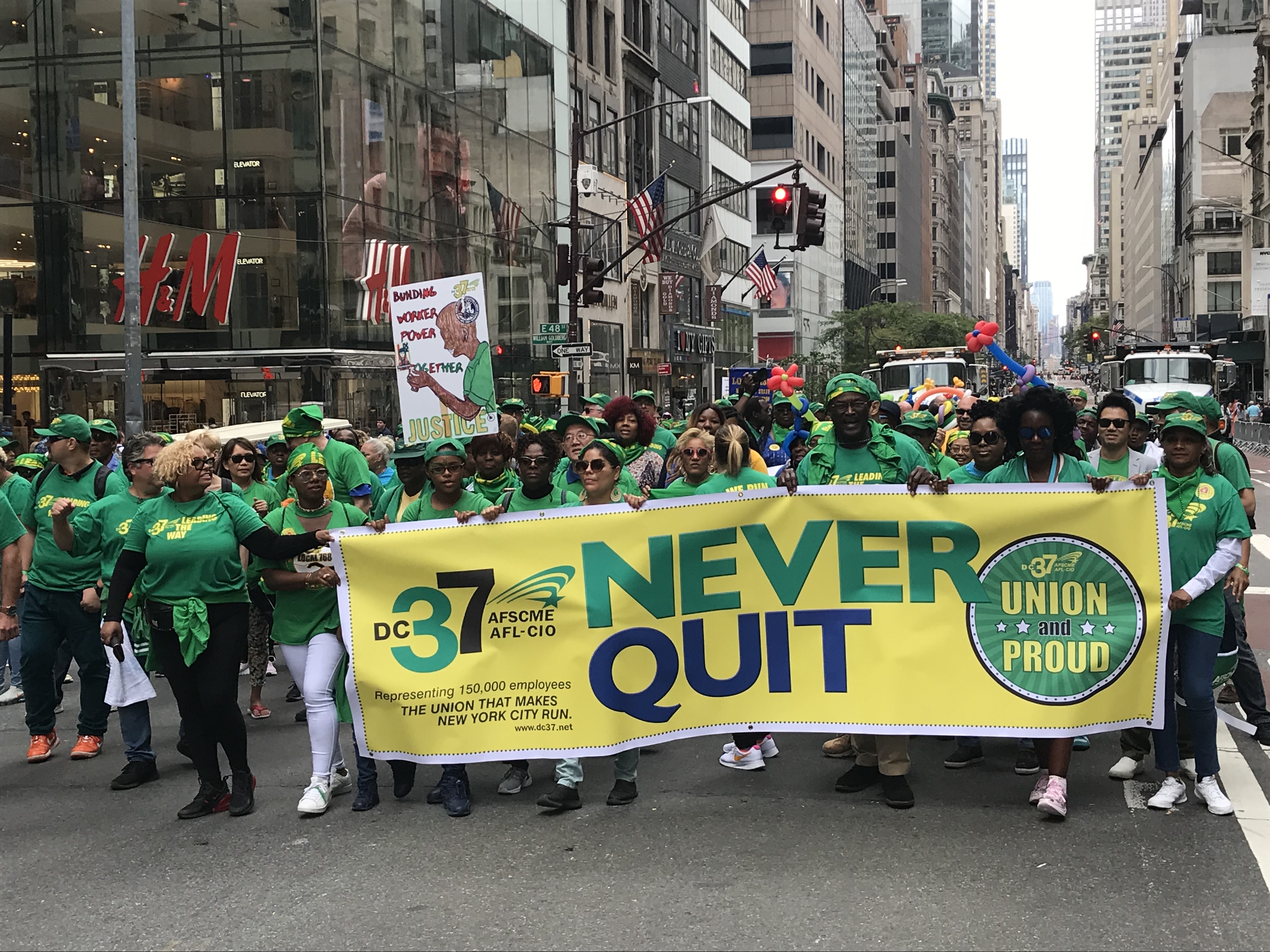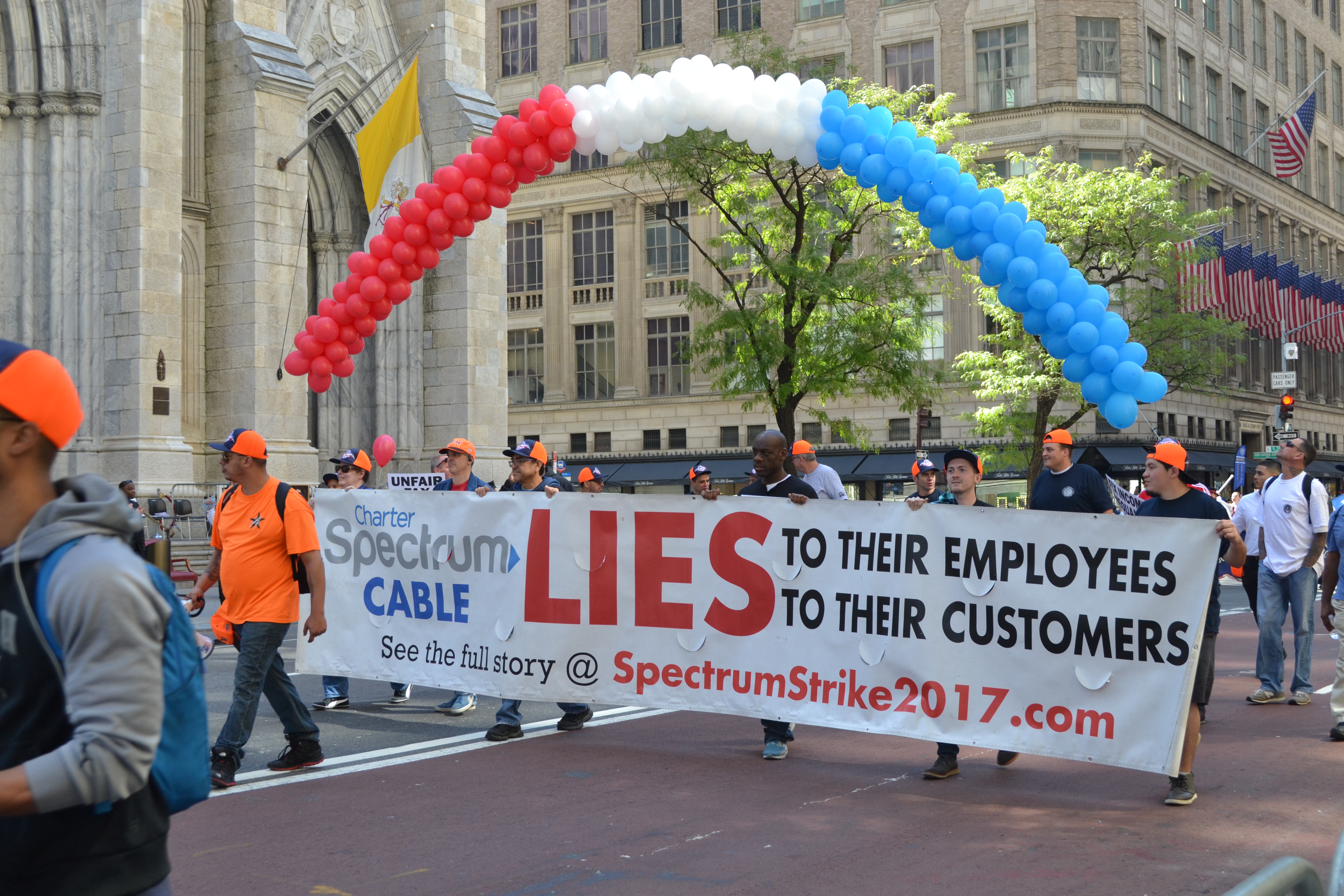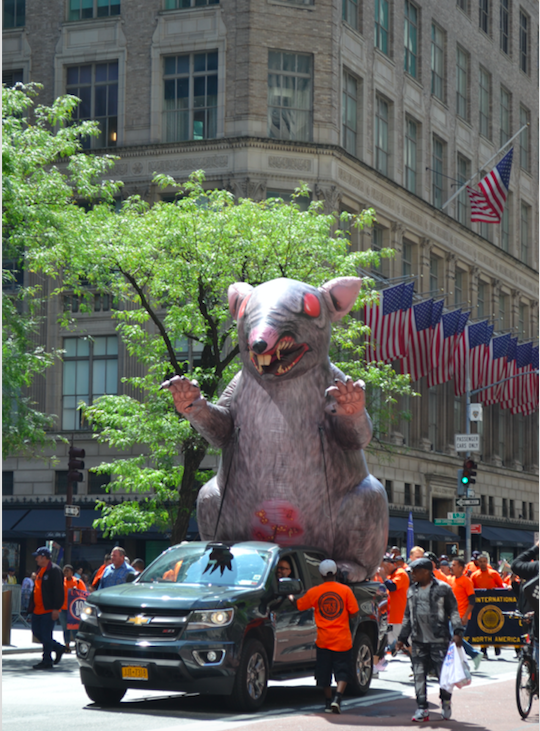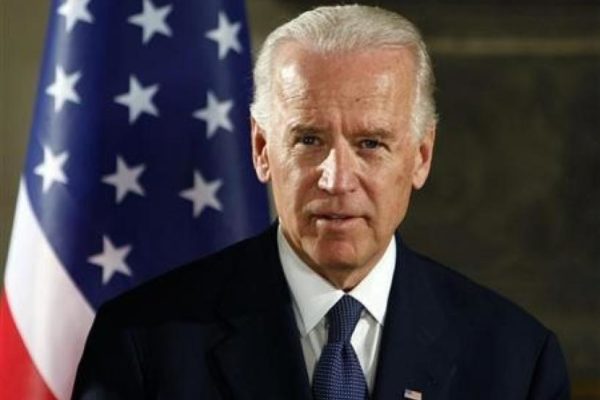
NEW YORK, N.Y.—What’s most important for the American labor movement going into 2020? Among 10 union leaders who spoke to LaborPress at the Labor Day parade Sept. 7, the three common themes were solidarity, turning back attacks on workers, and convincing people of the value of unions.
“Unions as a group need to stand together,” says Randi DiAntonio, vice president of the Professional Employees Federation. Sara Nelson, head of the Association of Flight Attendants, says the labor movement needs to work hard to break down “massive, growing inequality,” “the racist, sexist divisions that management has put between us,” and the attitude that “if my neighbor has a good union job, to pull them down.”
The Trump administration is “attacking everything we stand for, from the National Labor Relations Board on down,” says Tony Speelman, president of United Food and Commercial Workers Local 1500, which represents supermarket workers.
“There has never been a greater need to support the middle class and working class,” says John J. Murphy, the United Association of Plumbers’ New York State representative. He sees a “resurgence of the American worker, citing polls that show rising public support for unions.
For 1199SEIU, “organizing the unorganized” is the way to build the power needed to win economic justice, says secretary-treasurer Maria Castaneda. Repealing “all the laws that are preventing workers from organizing” would help that, she adds.
An important step, says Teamsters District Council 16 head George Miranda, would be Congress to repeal the federal law that lets states enact “right to work for less” laws that ban the union shop. Shaun D. Francois, president of AFSCME Local 372, which represents city school paraprofessionals, lunch workers, and other support staff, notes that those laws, like the Supreme Court’s 2018 Janus decision, are based on the attitude that unions shouldn’t ‘force’ employees to pay dues—but expecting a union to run without dues is like expecting the government to function without taxes.
Tiffany Foster, vice president of the American Postal Workers Union’s New York Metro chapter, says people need to remember that unions are what won a decent standard of living for American workers. Before their landmark 1970 strike, she adds, postal workers had as few rights as Walmart workers do today. They were “at will” employees who could be fired at any time without any reason.

Local Concerns
Unions’ more specific and local issues echo those themes, but vary widely. For New York’s building trades, a top concern is “the encroachment of nonunion developers,” says Mike McGuire, political director of the Mason Tenders District Council.
Publicly subsidized affordable housing in the city is built “almost all nonunion,“ he adds. The union supports building it—“our members need it too”—but “a lot of developers are getting very rich, and it’s not trickling down to the workers.
For public-sector workers, understaffing, outsourcing, and privatization are major problems, say Tiffany Foster, Sean Francois, and PEF contract chair Darlene Williams. “Staffing needs to become contractual language,” says Francois, to guarantee that there are enough workers to do the job.
Low pay is another concern. A lot of Local 372 members make $15 an hour, the city minimum wage. Francois says he’s glad the union worked to raise it, “but you can’t live in New York City off $15 an hour.”
For supermarket workers, says Tony Speelman, it’s organizing while the industry is being threatened by multinational nonunion chains like the Amazon-owned Whole Foods, Trader Joe’s, Aldi, and Walmart. “The little guys have trouble competing,” he adds, referring to unionized local chains such as D’Agostino, Gristedes, and Key Foods.
The Teamsters’ biggest concern is protecting multiemployer pension plans, many of which are facing insolvency because they have too few active workers contributing. “The only way to bail them out is through Congress,” says Miranda. “If it’s not fixed, a lot of retirees are going to take a haircut.” The House has passed a bill to do that—the Butch Lewis Act—but the Senate hasn’t.
For flight attendants, says Sara Nelson, it’s winning equal pay at regional airlines, which averages 45% less than at national airlines. Those carriers, she explains, claim that they can’t afford to pay more because the national airlines award regional routes to the lowest bidder—but passengers pay the same fares as on a bigger airline.
“Climate change,” says 1199’s Castaneda. The SEIU is the largest union supporting the Green New Deal, and 1199 is also backing the “climate strike” protests scheduled for Sept. 20. It’s “organizing our healthcare workers to save the planet… for our survival,” she adds.
The Plumbers’ Murphy, however, calls the “anti-fossil fuel movement” his union’s main local concern. The union is supporting a proposed natural-gas pipeline to Long Island that environmentalists are campaigning to stop. Not having a reliable gas supply could cost up to 10,000 construction jobs on the island, Murphy says.
“We know climate change is real,” he says, but the transition to renewable energy such as offshore wind power “needs to be done intelligently and slowly.”

Delaying Presidential Endorsements
Despite all these concerns, all but a few unions are not endorsing a Presidential candidate yet. The Democratic hopefuls “are all pretty decent on labor issues,” says Mike McGuire, “but it’s too soon.” “We’re getting our members active and involved, and informing them about the candidates’ positions,” says DiAntonio.
Shaun Francois says that he personally thinks former Vice President Joseph Biden “is a good choice,” but emphasizes that his union making an endorsement is a three-part process, going up the pyramid from Local 372 to District Council 37 to the national AFSCME. John Murphy says he likes Ohio Rep. Tim Ryan, because he “represents the people who take showers after work,” but there are too many candidates in the field for the Plumbers to pick one now.
If rank-and-file sentiment could be judged by the buttons and T-shirts parade marchers and spectators were wearing, however, Vermont Sen. Bernie Sanders would be by far the predominant choice.
LeRoy Barr, secretary and director of staff for the United Federation of Teachers, says the best candidate would be someone who understands the plight of workers, and believe that they have a human right to “live a respectable life when you work, and have a respectable life when you retire.”
“We can do that for everyone. When are we going to make that happen?” he asks. “I believe that time is now.”

